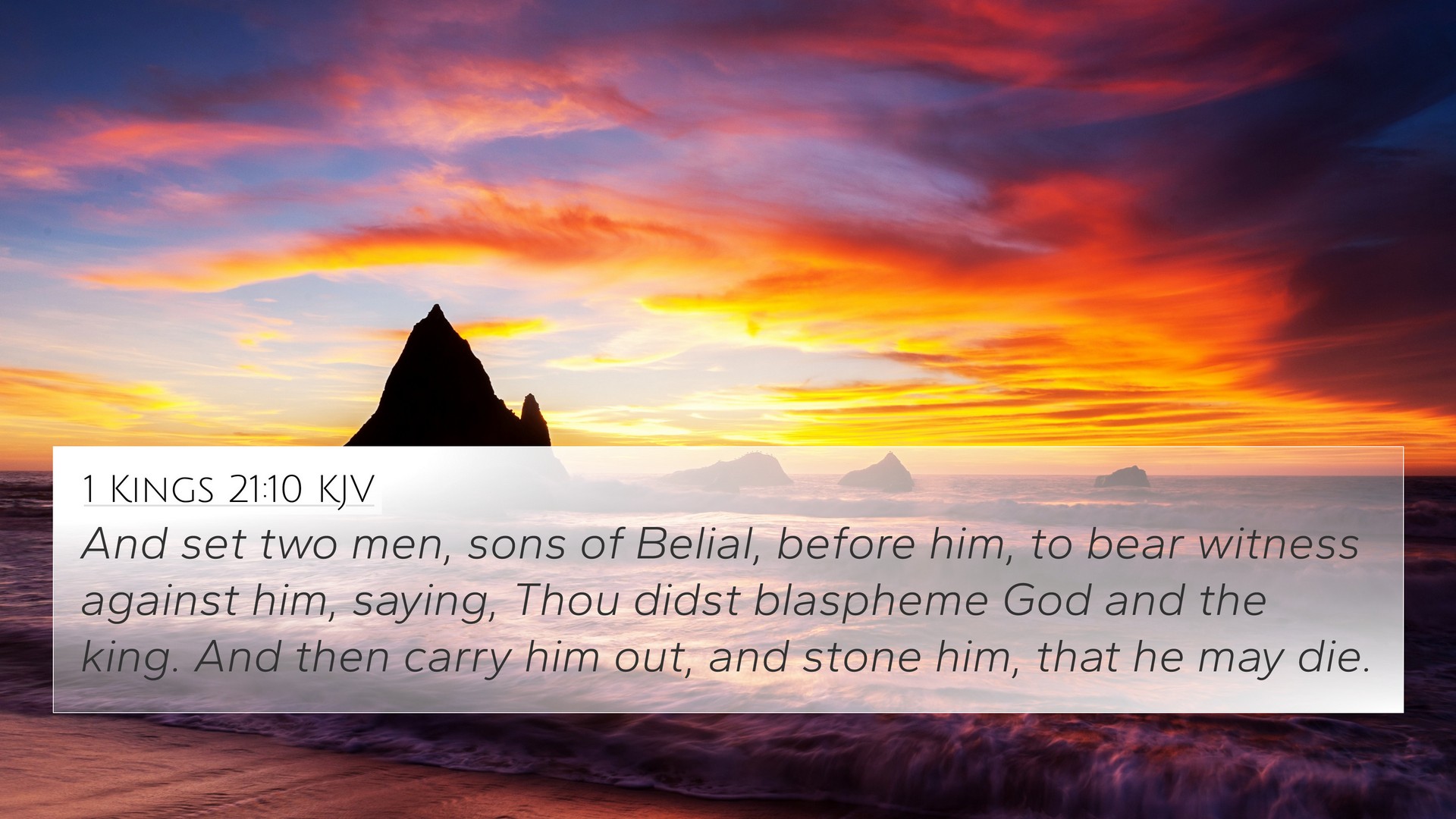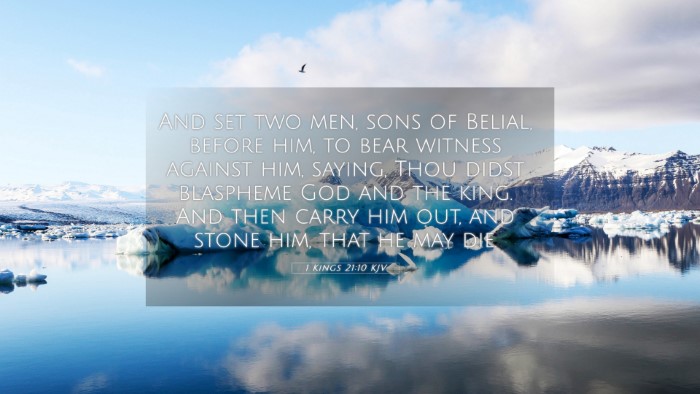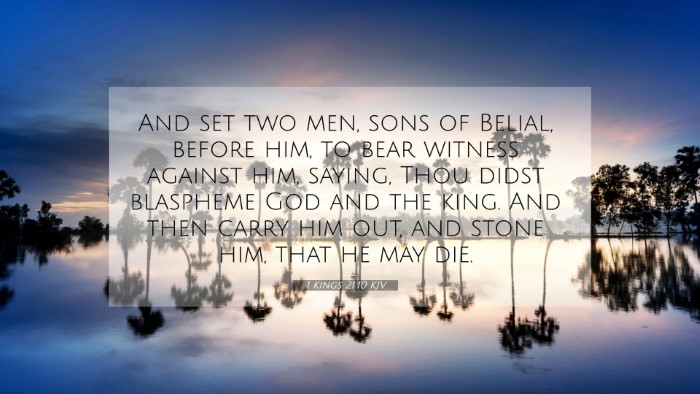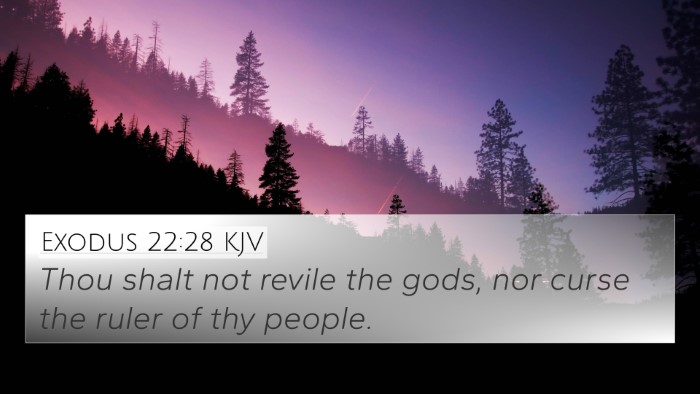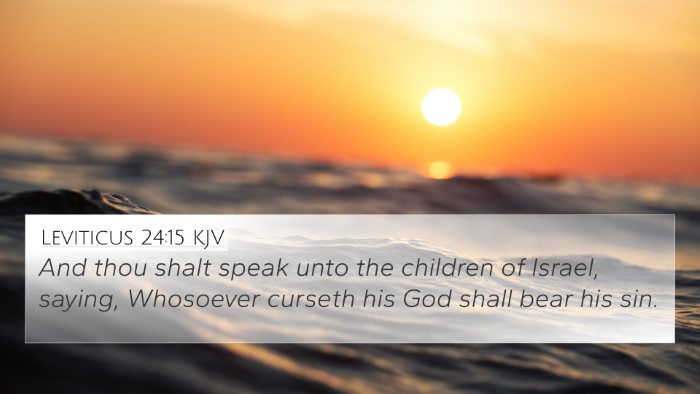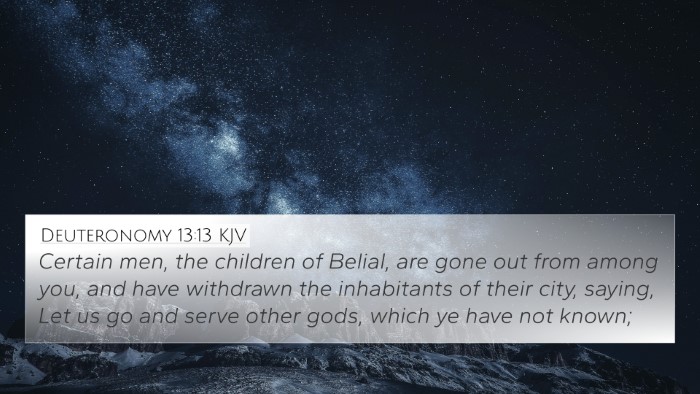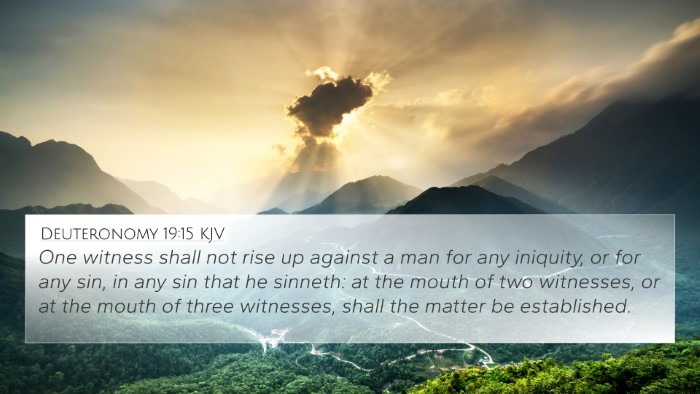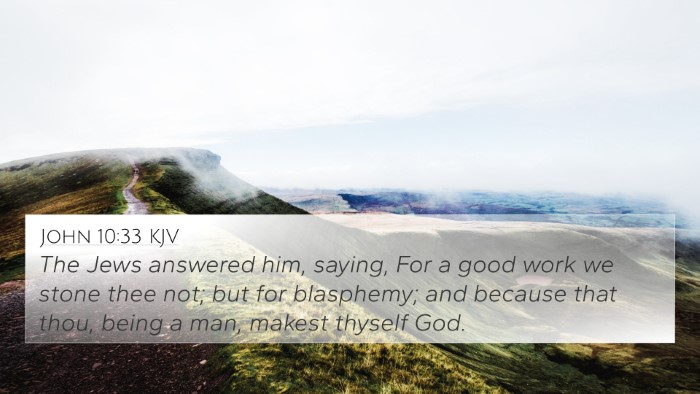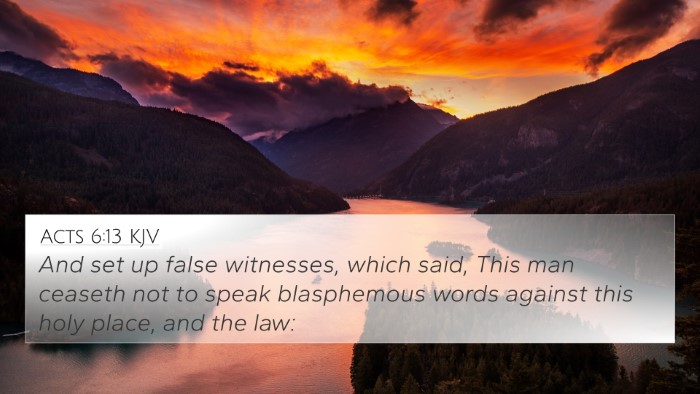Understanding 1 Kings 21:10
Verse: "And set two men, sons of Belial, before him, to bear witness against him, saying, You did blaspheme God and the king. And then carry him out, and stone him, that he may die." (1 Kings 21:10)
Contextual Overview
This verse occurs in the story of Naboth's vineyard, where King Ahab desires Naboth's land. Due to Naboth's refusal to sell his inheritance, Jezebel, Ahab's wife, orchestrates a plan to falsely accuse Naboth, leading to his wrongful execution. This account illustrates deep themes of injustice, the abuse of power, and the consequences of sin, particularly how leaders may manipulate justice for personal gain.
Commentary Insights
The following insights combine interpretations from public domain commentaries:
Matthew Henry:
- Manipulation of Justice: Matthew Henry emphasizes how Jezebel, representing wickedness, contrived a scheme to ensure Naboth's death. Her actions symbolize individuals who misuse authority.
- Sons of Belial: He remarks on the phrase "sons of Belial," interpreting it as referring to worthless and wicked men used to construct false testimonies, demonstrating the severity of framing the innocent.
- Blasphemy Allegation: The accusation of blasphemy reflects a serious charge that undermines the sanctity of God and governance, revealing the lengths to which Ahab and Jezebel would go to satisfy their desires.
Albert Barnes:
- Legal Framework of False Witness: Albert Barnes notes the legal precedents by which false witnesses were expected to pay with their own lives, reflecting the seriousness of God’s law regarding justice.
- Context of Judgment: He also highlights that Naboth's execution was not only a personal tragedy but a broader indictment of Israel’s moral decline under Ahab and Jezebel’s rule.
Adam Clarke:
- Consequences of Deceit: Adam Clarke's analysis relates the corrupt practices of using false witnesses to the societal breakdown in Israel’s moral fabric.
- Faithful Remnants: Clarke suggests that such injustices eventually catalyzed the prophetic outcry against Ahab, bringing God’s retribution upon both him and Jezebel.
Thematic Elements and Cross-References
1 Kings 21:10 has strong thematic parallels and cross-referencing with other scriptures that discuss justice, false witness, and divine judgment. The following verses relate to the themes present in this verse:
- Exodus 20:16: “You shall not bear false witness against your neighbor.”
- Proverbs 19:5: “A false witness will not go unpunished, and he who breathes out lies will not escape.”
- Matthew 26:59-61: The false witnesses against Jesus demonstrate the ongoing issue of leading innocents to death by fabricated testimonies.
- John 8:44: Jesus refers to the devil as a liar and the father of lies, correlating to the deceit seen in Jezebel’s actions.
- Luke 18:7-8: The parable of the persistent widow emphasizes divine justice, contrasting human evilness.
- Acts 7:58: The stoning of Stephen parallels Naboth’s wrongful death, showcasing how the innocent are often persecuted.
- 2 Samuel 12:1-6: Nathan’s parable to David highlights the theme of accountability and consequences resulting from wrongful acts against the innocent.
- Jeremiah 22:3: Emphasizes the necessity for justice and righteousness, directly relating to the morals in Ahab and Jezebel’s plot.
- Revelation 21:8: Describes the fate of the cowardly, faithless, and deceitful, illustrating God’s judgment on the wicked.
- Mark 14:55-56: The chief priests sought testimony against Jesus, mirroring the tactics seen in Naboth's trial.
Practical Implications
1 Kings 21:10 serves as a profound lesson regarding the nature of injustice, manipulation, and moral corruption. Believers can draw from this passage several practical lessons:
- Value of Integrity: Upholding truth and justice is vital, even in the face of societal pressures to conform to wrongdoing.
- Caution Against Power Abuses: Understanding that authority can corrupt, it is essential to advocate for fairness and righteousness in leadership.
- Awareness of False Accusations: Christians should learn to discern and challenge false claims against others, ensuring that their testimony remains reliable and grounded in truth.
Conclusion
The narrative surrounding 1 Kings 21:10 epitomizes the complexities of human nature in relation to authority, justice, and moral failings. Through reflective study and cross-referencing related Bible verses, readers gain richer insights into how these themes resonate throughout Scripture, encouraging a deeper examination of faith, ethics, and their applications in everyday life.
